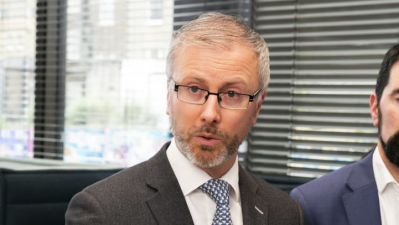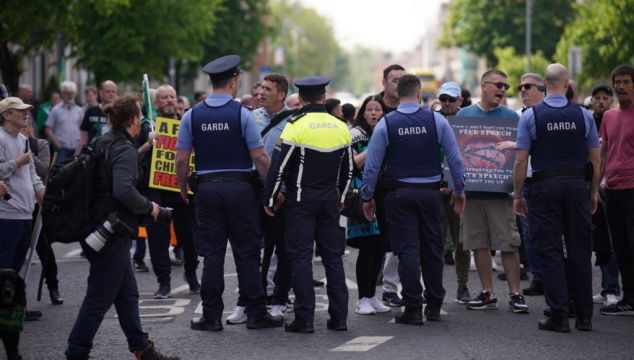Updated at 10:22
Brian Killoran, chief executive of the Immigrant Council of Ireland has said that better communication and proper infrastructure are needed to avoid protests and 'tension points' over the housing of asylum seekers.
Mr Killoran told RTÉ radio's Morning Ireland, that communication should come from the top down alongside “growth from the grassroots”. There should not be a reactive approach, he warned.
“You need to support communities, resource them, give them the power to do what they are doing now on a daily basis but do it in a more structured basis.
"We have to pull the trigger on it now so that we can build the capacity over the coming months to avoid these tension points and avoid protests.
“We have heard repeatedly from the Department of the Taoiseach that they are mulling over the options.
“Unfortunately, the tension points and the protests show a very different message which is not actually reflective of what the actual approach of Irish society is and the attitudes of the Irish public.
“That is the weight we have behind us, the momentum we have behind us, but we need to build ourselves out of this reactive approach”.
Refugee accommodation could be in very rural, isolated places because of capacity issues, The current situation was not taking place under normal circumstances, he said.
“It is happening on the back of a series of migration crises including Ukraine”.
Local residents
It comes as Fianna Fáil Senator Timmy Dooley warned that it is going to be difficult to resolve the protest outside Magowna House in Inch, Co Clare.
The concerns and fears of local residents had to be heard and acknowledged, he told RTÉ radio’s Morning Ireland.
It was important to ‘de-escalate’ the situation, it was not good for anyone to have a light shining on the area like this. The issue needed to be viewed in the context of 84,000 arriving in the country seeking protection, he said.
Senator Dooley acknowledged that Magowna House was not ideal for the purpose of accommodating international protection applicants given its remote location, but it would be worse if the people had to sleep on the streets of Ennis, Galway or Limerick.
Efforts by some with a more extreme ideology to join the protest had been resisted by the local residents, he said. “They were asked to leave – politely and not so politely. The local community will push them back and rightly so”.
While it was unlikely that the Minister for Integration Roderic O’Gorman would visit Inch, Senator Dooley was hopeful of organising some form of communication. “
"People like to be heard, to have their fears and concerns to be taken into consideration. They want to get back to their daily lives and move away from the narrative of name-calling”.
Senator Dooley said he would continue to work to allay the fears of the locals and to get access for them to department officials.
“These people don’t want to be there overnight. We all know it has to end, it’s how it ends, the process to get to the other side”.

As the Irish Times reports, the Government plans to open centres in Santry, Clondalkin and Dún Laoghaire in Dublin for people seeking international protection in the coming months.
While the Government has indicated it will bring up to 350 beds on stream in the near future, documents distributed to TDs recently outline plans for a larger, phased process accommodating people at two larger sites – Dolcain House in Clondalkin and a warehouse in Airways industrial estate in Santry, Dublin, where a total of nearly 700 people will be housed between the two centres.
There will also be two smaller sites – Magowna House into which IP applicants are already being moved; while the fourth site, at the former Senior College Dún Laoghaire building on Eblana Avenue, needs significant works before it is habitable.
According to documents given to TDs, more than 300 single men will be accommodated in Santry, while 386 will be housed in Clondalkin.







